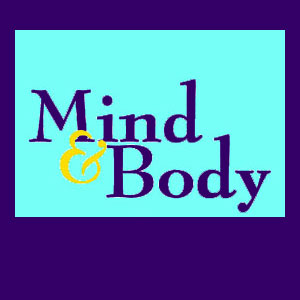
Psychosomatic is a word that carries an unfair negative connotation. Most people believe psychologically-induced pain syndromes are products of an abnormal and unhealthy mind. In reality, the mind helps to create all the physical processes in our bodies, including good health and disease. All aspects of our anatomical condition are dependent upon input from the mind. When you realize this simple and basic fact of life, the true nature of psychologically-induced physical conditions is clear to understand.
From the start, it must be established that all psychosomatic health issues are 100% real. They are no less valid than purely physically motivated symptoms. The only difference is that the causative process resides inside the mind, rather than the body.
This essay explores the true meaning of the word psychosomatic. We will focus on the use of the word in the healthcare industry and particularly how it can apply to the origins of many chronic back pain conditions.
What is Psychosomatic?
The actual word means a physical condition or expression that is created through a mental or emotional process. Most people believe that psychological expressions that cause some abhorrent physical condition indicate mental illness or deficiency. There has always been a strong stigma attached to any illness related to a psychoemotional process.
I work with patients every day who are offended by the mere suggestion that their pain might have a psychological causation. Their anger is obviously a conditioned response and usually based upon the inference that they are faking the pain or exaggerating it in some way:
“I am not crazy. My pain is real!”
This is the usual response I receive. I continue to ask them if they have ever experienced a stress-related headache or upset stomach.
100% answer, “Yes, of course.”
I ask them if this pain was real. They agree that it was indeed real. At this point I ask them again if their back pain might be caused by stress or emotions. This usually creates a long pause, followed by the response:
“Hmmm… I don’t know. Maybe.”
Psychosomatic Response
Physical pain caused by a psychoemotional process is very real. It is not imaginary. It is not delusional. It is certainly not an indicator of mental illness. On the contrary, show me an individual that has never had a psychogenic expression and I will show you an evolutionary anomaly. Psychologically-induced conditions are a completely normal part of the human condition. I have them. You have them. Your doctor has them. (They just hate to admit it…)
Remember not all of these expressions are bad. There are also positive psychologically-motivated anatomical changes, as well. The sexual response is a great example. How about just feeling great physically when things work out well emotionally. As previously mentioned, the mind creates all manner of health expressions in the body, both good and bad.
Mindbody Back Pain Tips
Psychologically-motivated pain is one of the most common forms of acute and chronic dorsalgia. A large number of patients with unresolved back pain are actually suffering from a misdiagnosed psychologically-induced pain condition.
Medical doctors are not prepared to handle these types of problems. Doctors usually want to blame all pain on some easy to identify but harmless scapegoat condition. Medical schools have to revise their educational process if the epidemic of back pain is ever to end.
Is there hope? Sure. Is change imminent? Yes!
New changes to diagnostic policy have taught doctors not to blame pain on structural abnormalities in the spine without definitive evidence (which almost never exists). While this is not really a step forward in mindbody medicine, at least it will make doctors think deeper:
“If the structural aberration is not the source, then what is?”
Eventually, they might come around to embrace the big picture.




